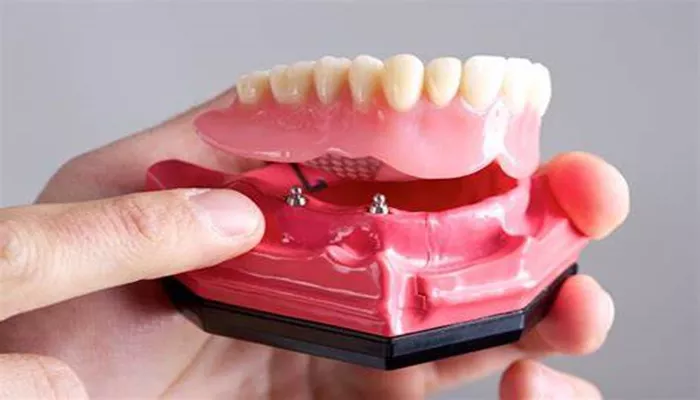Oral thrush, also known as oral candidiasis, is a fungal infection caused by an overgrowth of Candida yeast in the mouth. It can affect anyone, but it is particularly common in individuals with weakened immune systems, diabetes, or those who wear dentures. One of the most significant concerns for denture wearers who have experienced thrush is the potential for reinfection. Proper disinfection of dentures is essential to prevent the recurrence of thrush and to maintain oral health.
This article will guide you through the steps necessary to effectively disinfect dentures after thrush.
Understanding Oral Thrush
What is Oral Thrush?
Oral thrush is characterized by white patches on the tongue, inner cheeks, gums, and sometimes the roof of the mouth. It can cause discomfort, a burning sensation, and difficulty swallowing. The infection occurs when Candida yeast, which is normally present in small amounts in the mouth, grows uncontrollably. Factors contributing to this overgrowth include:
Weakened Immune System: Conditions like HIV/AIDS, cancer, or diabetes can compromise the immune system.
Antibiotic Use: Antibiotics can disrupt the balance of bacteria in the mouth, allowing yeast to thrive.
Dry Mouth: Reduced saliva flow can create an environment conducive to yeast growth.
Poor Oral Hygiene: Inadequate cleaning of dentures can lead to the accumulation of yeast.
Why is Disinfection Important?
Disinfecting dentures after thrush is crucial for several reasons:
Prevent Reinfection: If dentures are not properly cleaned, residual yeast can lead to a recurrence of thrush.
Maintain Oral Health: Clean dentures contribute to better overall oral hygiene, reducing the risk of other infections.
Enhance Comfort: Properly disinfected dentures are more comfortable to wear and less likely to irritate the gums.
Steps to Disinfect Dentures After Thrush
1. Remove Dentures and Rinse
The first step in disinfecting dentures after thrush is to remove them from the mouth:
Remove Dentures: Gently take out your dentures and place them in a clean basin or sink.
Rinse Thoroughly: Rinse the dentures under warm running water to remove any food particles and debris. Avoid using hot water, as it can warp the dentures.
2. Clean with a Soft Brush
Using a soft-bristled toothbrush or a denture brush, clean the dentures thoroughly:
Use a Non-Abrasive Cleaner: Choose a non-abrasive denture cleaner or mild soap. Avoid using regular toothpaste, as it can be too abrasive.
Brush All Surfaces: Gently brush all surfaces of the dentures, including the inside, outside, and any clasps. Pay special attention to areas where food particles may accumulate.
Rinse Again: After brushing, rinse the dentures thoroughly under warm water.
3. Disinfect with an Appropriate Solution
Disinfection is a critical step in eliminating Candida yeast from the dentures. There are several options for disinfecting dentures:
Commercial Denture Cleaners
Choose an Antifungal Cleaner: Look for denture cleaning solutions that contain antifungal properties. These products are specifically designed to kill yeast and bacteria.
Follow Manufacturer’s Instructions: Soak the dentures in the solution according to the product instructions, typically for 15-30 minutes.
Homemade Disinfecting Solutions
If you prefer a DIY approach, several homemade solutions can effectively disinfect dentures:
Vinegar Solution: Mix equal parts of white vinegar and water. Soak the dentures in this solution for 30 minutes. Rinse thoroughly afterward.
Baking Soda Paste: Create a paste using baking soda and water. Apply the paste to the dentures and scrub gently. Rinse well.
Hydrogen Peroxide: Mix equal parts of hydrogen peroxide and water. Soak the dentures for 30 minutes, then rinse thoroughly.
4. Rinse and Dry
After disinfecting the dentures, it is essential to rinse them properly:
Thorough Rinse: Rinse the dentures under running water to remove any disinfecting solution.
Dry the Dentures: Use a clean, soft cloth to dry the dentures gently. Avoid using paper towels, as they can leave fibers behind.
5. Store Dentures Properly
Proper storage of dentures is crucial for maintaining their cleanliness:
Keep Them Moist: Store dentures in a clean container filled with water or a denture solution to prevent them from drying out and warping.
Avoid Contamination: Ensure the storage container is clean and free from contaminants.
Additional Tips for Preventing Thrush Recurrence
Disinfecting dentures is essential, but preventing the recurrence of oral thrush is equally important. Here are some additional tips to help reduce the risk:
1. Maintain Good Oral Hygiene
Brush Your Teeth: Brush your natural teeth at least twice a day with fluoride toothpaste.
Clean Your Gums: If you have no natural teeth, gently brush your gums with a soft toothbrush.
Regularly Clean Dentures: Clean your dentures daily, following the steps outlined above.
2. Stay Hydrated
Drink Plenty of Water: Staying hydrated helps maintain saliva production, which is essential for oral health.
Use Saliva Substitutes: If you suffer from dry mouth, consider using saliva substitutes or mouth rinses designed to alleviate dryness.
3. Limit Sugar Intake
Reduce Sugar Consumption: High sugar intake can promote yeast growth. Limit sugary foods and beverages to help maintain a healthy oral environment.
4. Regular Dental Check-Ups
Visit Your Dentist: Regular check-ups allow your dentist to monitor your oral health and address any issues before they become serious.
5. Discuss Medications with Your Doctor
Review Medications: If you are taking medications that may contribute to oral thrush, discuss alternatives with your healthcare provider.
Conclusion
Disinfecting dentures after experiencing oral thrush is a vital step in preventing reinfection and maintaining overall oral health. By following the outlined steps—removing and rinsing dentures, cleaning with a soft brush, disinfecting with appropriate solutions, rinsing, and storing properly—denture wearers can significantly reduce the risk of future thrush episodes. Additionally, practicing good oral hygiene, staying hydrated, and maintaining regular dental visits will further enhance oral health and comfort. If you continue to experience symptoms of thrush or have concerns about your dentures, it is essential to consult with your dentist for personalized advice and treatment.
Related topics:

